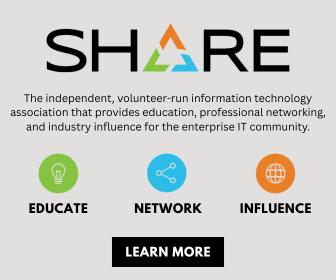Felix Scott, a trainee in the New to Z (NTZ) program at Vertali in the UK, doesn’t fit the usual mental picture of a mainframer. At 27, he’s a younger voice in a field dominated by veterans. But Felix isn’t afraid to admit what he doesn’t know. “Being publicly wrong is a superpower when you’re new,” he says.
This mindset has propelled him from programming puzzles to becoming a recognized name in the global mainframe community.
A Family Legacy Meets a New Opportunity
Felix entered the mainframe world after watching his dad love his job for decades. “I grew up solving programming problems with him on holidays, bobbing in the pool,” he said with a chuckle.
That early interest led him to pursue a computer science degree and eventually explore a career in mainframes. He also has a natural aptitude. Mark Wilson, Technical Director at Vertali, offered his praise: “Felix has embraced the mainframe. I’ve never seen someone take to it so quickly!”
In NTZ, Felix’s typical workweek consists of client support, intensive learning, and self-directed projects, such as creating a tool to find the closest GDG to a date, plugging that into an ISPF panel, and “making it pretty.”
He may spend one week in eight-hour virtual learning sessions, producing 300 pages of notes, and then the next two weeks focusing on solving client issues. With a strong programming background and an appetite for side quests, Felix uses his free time to build tools and solve minor gripes that accelerate his team’s work.
Finding Community
While some newcomers might find the mainframe intimidating or isolating, Felix describes a different experience as he concludes his first year. Compared to the IT industry, which he describes as “you’re a tiny fish in a big pond,” working in the mainframe is a supportive learning place. “Mainframers are just so welcoming,” he said. “They’ll spend hours explaining something if you’re curious. It doesn’t feel competitive; it feels cooperative.”
Mainframers are just so welcoming. They’ll spend hours explaining something if you’re curious.
A Learning Curve
Despite the support, the learning curve hasn’t been easy. “The documentation is sparse, outdated, or hard to understand,” Felix admits.
It’s not about how smart you are, either. Rather, it requires a significant brain switch and guidance on how to start. Felix doesn’t recommend anyone try to teach themselves how to program a mainframe. “You need people to show you how to read the manuals and navigate the system.”
For example, three different people explained Assembler to Felix in three different ways in one week. Does Felix still have Assembler questions? Yes.
Advice for the Next Newcomer
His advice to others considering a mainframe path is to lead with curiosity at every opportunity and be willing to ask questions, even the ones that make you feel foolish. “Showing interest gets you further than trying to look smart. People here want to help.”
As long as you persist, ask questions, and talk to people, it will start to make sense.
Felix believes a career in mainframes is a path to building lifelong, relevant skills. As programming languages and workflows change and new technologies rise, IT professionals can struggle to stay on top of what’s new. In contrast, said Felix, “With the mainframe, all your skills will remain relevant forever.”
Cloud and Security
Beyond his technical chops, Felix brings thoughtfulness to larger conversations around enterprise tech. He’s cautious about the hype around the cloud, especially if it ignores the mainframe’s durability and governance strengths. He’s particularly dubious about downtime and ownership if anything goes awry. But with typical humility, Felix acknowledged he doesn’t know everything about the debates, barriers, or how finances come into decision-making.
When asked if the mainframe is secure, he pauses. “The mainframe is secure because the people running it make it secure. The risks usually come from people, not the system.” This aligns with the Vertali perspective that the mainframe is not inherently secure, but is securable. Felix explained that security options often exist, but people aren’t taking advantage of them. For instance, the default password length for users on the mainframe is eight characters, which is laughably insecure in the modern world. The option for longer passwords exists, but people may not know there are options to change passwords, leaving a vulnerability.
Beyond the Greenscreen
Felix’s voice is part of a growing cohort of younger mainframers reshaping perceptions of the platform and its culture.
He plays badminton with his wife, teaches himself guitar, and uses his remote work setup to squeeze more learning into his day. His curiosity seems boundless, and he’s found a place to channel his talents. Felix is one to watch.









0 Comments